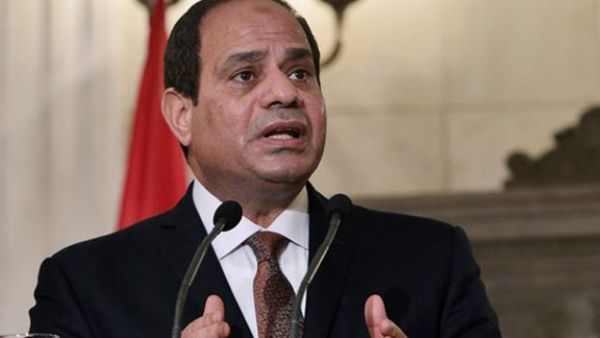Egyptian President Abdel Fattah al-Sisi announced late on Sunday a three-month state of emergency following the bombings of two Coptic Christian churches in Egypt.
Sisi announced the "state of emergency for three months" in a defiant speech at the presidential palace after a meeting of the national defence council.
Under the country's constitution, Sisi will have to put the measure before parliament, which is stacked with his supporters, for approval within a week.
The emergency law expands police powers of arrest, surveillance and seizures and can limit freedom of movement.
The army chief-turned-president also announced the founding of the "Supreme Council to Counter Terror and Extremism", a new security apparatus aimed at combating a growing militant insurgency in the country.
Sisi then urged media outlets to be "careful" in their coverage of the events that "hurt the Egyptian people", adding that the parliament should address the religious discourse in the coming period.
At least 43 people were killed in the bombings in the Nile Delta cities of Tanta and Alexandria, which happened as worshipers were gathering to mark Palm Sunday.
The Islamic State group has claimed responsibility for bombings of the two Egyptian churches.
US President Donald Trump condemned the attack and said in a tweet that he had "great confidence" that Sisi "will handle the situation properly".
The attacks were the deadliest in recent memory against the country's Coptic Christian minority.
Copts, who make up about one tenth of Egypt's population of more than 92 million and who celebrate Easter next weekend, have been targeted by several attacks in recent months.
Pope Francis is due to visit Cairo on 28-29 April to show solidarity with Egypt's Christian community. Some experts have said the attack may be an attempt to force a cancellation.
In December, a suicide bombing claimed by the Islamic State group killed 29 worshippers during Sunday mass in Cairo.
Egypt had been ruled for decades under a state of emergency, which was cancelled a month before Islamist president Mohamed Morsi took power in 2012.
Rescinding it had been a main demand of Egyptian rights activists during the 2011 revolt that overthrew veteran strongman Hosni Mubarak.
Following Morsi's overthrow by Sisi, then an army chief, in 2013, a state of emergency was declared for a month after deadly clashes between police and Islamist protesters killed hundreds and Islamist mobs attacked Christian properties.
Part of North Sinai where the Islamic State group's Egyptian affiliate is based has remained under a state of emergency.








